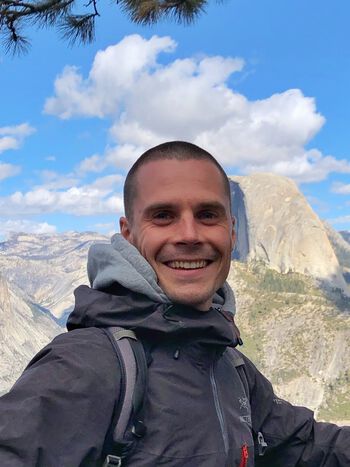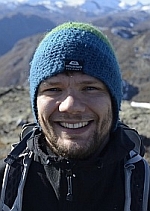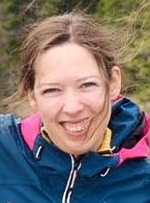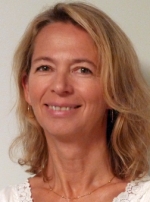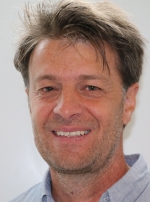Nettsider med emneord «Climate Change» - Side 2
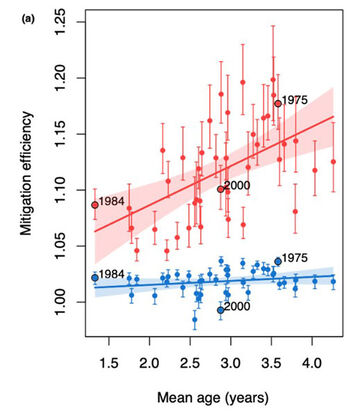
Climate change and increasing human activity are increasing risks of mass mortality events. In their recent study published in the Journal of Applied Ecology, Buttay et al. (2023) have focused on perturbations that could impact the early life stage of fish. Using the Northeast Arctic cod in the Barents Sea as an example, they evaluated different mitigation strategies alleviating the effect of such dramatic events on the population.

Lakes and rivers are the source of drinking water for most people in Norway, Sweden and Finland. Presently, climate change is posing a threat for the quality of drinking water sources. In recent years, concentrations of dissolved organic matter (DOM) in lakes and rivers have increased and associated with this, surface waters have become browner. This poses a major challenge to drinking water providers, as removal of DOM is a key step in drinking water treatment.
Both climate and atmospheric deposition are likely to blame for the brownification of surface waters. Brownification is expected to continue under climate change, but to what extent is unclear. Adaptation measures needed are likely to raise costs of water treatment and require long-term investments. In order to maintain good drinking water quality in the future, municipalities and other stakeholders urgently need science-based projections of raw water quality under climate change as well as information about the possibilities for, and costs of adaptation.

Climate change is thought to change many aspects of the marine life. Among others, one can mention changes in species distribution (immigration of species; new species coming to northern areas), the rate of development (warmer the temperature, the faster is the development), and change in the timing of the reproduction. The latter has recently caught a lot of attention around a nearly 50 years old hypothesis of the British fisheries biologist David Cushing.

Climate change, and especially alteration in sea temperature, is expected to have major effects on the distribution and abundance of marine fish. This is in particular the case in northern high-latitude marine ecosystems, where IPCC expects global warming to be especially pronounced.
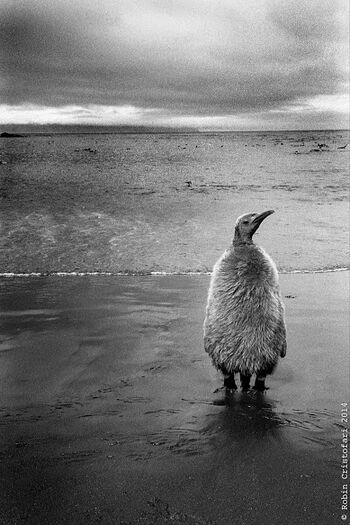
Seabirds in Polar Regions are experiencing increasing environmental stress due to climate change and pollution. They also serve as indicator species for changes in the environment. But what do they tell us about how seabird populations are affected by contaminants and climate, and is the situation the same in Antarctica as in the Arctic?

Increased sea temperature due to climate change can influence the distribution, abundance and seasonal timing of zooplankton. Changing zooplankton dynamics might in turn impact the higher trophic levels, such as fish and seabirds, feeding on these animals. In a recent paper, we show that temperature variation in the Atlantic waters of the Norwegian Sea and Barents Sea might have stronger effects on the abundance of the younger than older development stages of Calanus finmarchicus, and that these stages might appear earlier in spring during warm years.

This project explores how climate change and other long-term environmental changes can influence the transport, uptake and food web transfer of mercury in boreal lakes.

The Perma-Nordnet research network aims to take on an important role in permafrost research, addressing the relation between thermal, bio-geochemical and hydrological processes. The task of the network is to initiate and catalyse such efforts, as well as to build, carry forward and tighten existing co-operations between the network members.
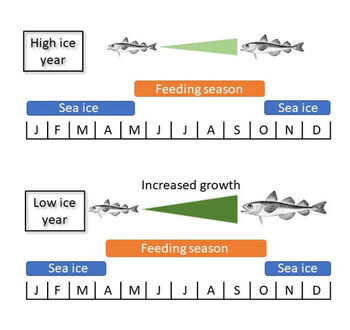
We studied the effect of changes in sea ice cover, sea temperature, and biomass of prey or predator on the length of polar cod. Our results show a significant negative effect of sea ice cover on length of all age groups of polar cod: Polar cod grow faster when there is less sea ice.

